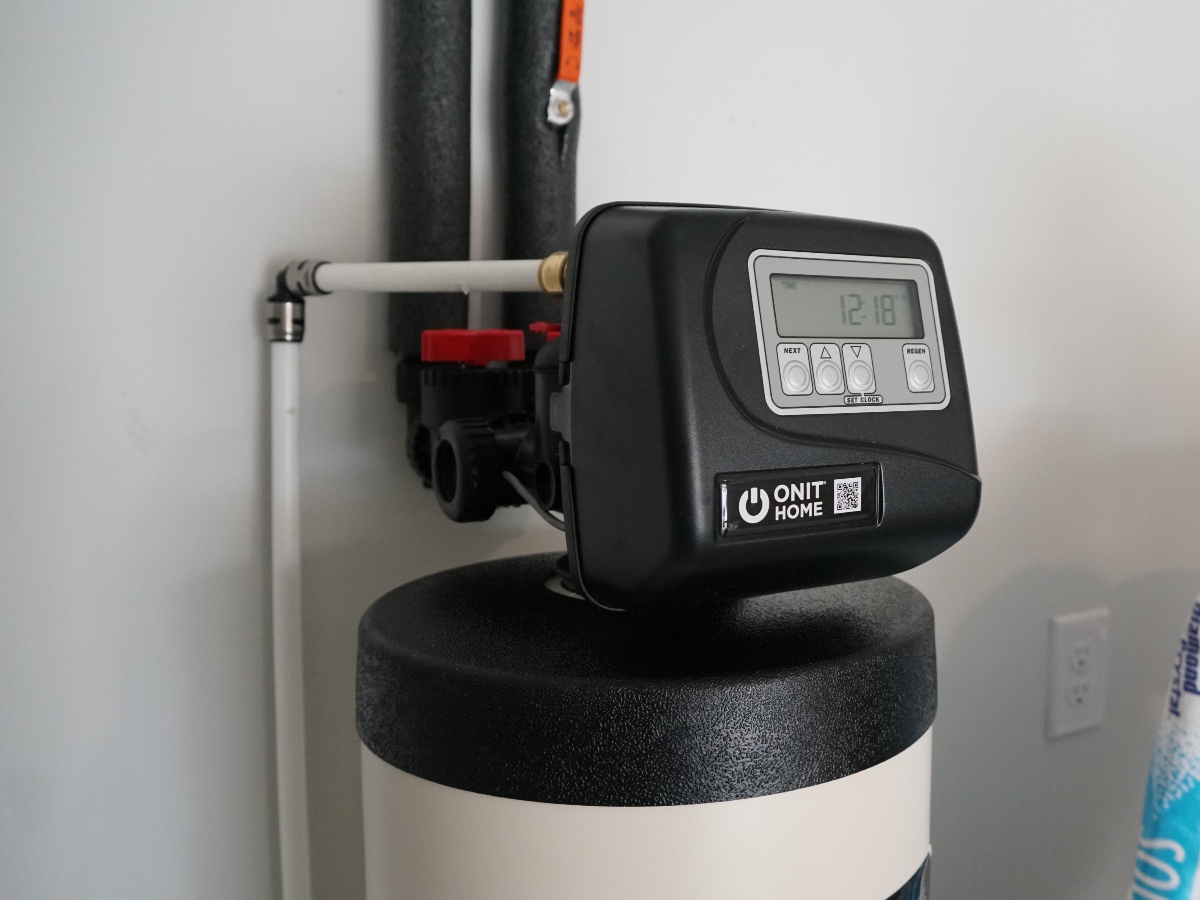Having well water on your property is a great benefit as it’s clean and natural. It also allows you to enjoy a free water supply, eliminating monthly water bills from municipal water. Despite its many health benefits, sometimes well water smells. Understanding what causes the smell and how to fix this problem is crucial. According to the U.S. Environmental Protection Agency, over 23 million American families get their drinking water from private wells. Unfortunately, well owners are solely responsible for the safety of their well water as it’s not under the Federal Safe Drinking Water Act (SDWA) regulation.
This article is for you if you’re a homeowner and your well water stinks. We will look at different types of smells in your water, what they mean, and the solution.
What Are the Common Reasons for Smelly Well Water?
If you have the misfortune of dealing with smelly well water, you know how unpleasant it can be. Fixing this problem becomes a matter of urgency since you need to know what could be the reason behind it. But what causes this foul odor? In most cases, it’s due to bacteria in the water. However, there are other reasons, such as metals, sewage, gas, and chemicals. Let’s look at the smells and how to remove them.
Well Water Smells Like Rotten Eggs or Sewage
Hydrogen sulfide gas (H2S) is the culprit behind the “rotten egg” or “sulfur” taste or odor in your water. The gas is odorless but easily mixes with water and can give off a strong sulfur taste and smell, leading to sulfuric water. Hydrogen sulfide occurs naturally because of plant and animal material decomposition and chemical reactions with rocks and soil. In addition, sulfate-reducing bacteria can release H2S in water. The bacteria live in anaerobic conditions (conditions without oxygen), including the well itself, the surrounding ground, the plumbing system, and water heaters.
Hydrogen sulfide gas is common in wells located near peat, coal, or oil fields. This makes it a more common problem for those who use underground water than for those who use city water. Although it’s rare, it’s crucial to test your well water for coliform bacteria.

What You Can Do
The first thing is to find the source of the smell. For example, if the smell comes from the hot water faucet, the problem could be in your heater. On the other hand, this could be from chemical reactions or sulfate-reducing bacteria. Here is how you can fix your water heater:
- Disinfect your water heater with chlorine bleach to flush out the bacteria.
- Replace the magnesium anode with an aluminum one.
- Increase the temperature of your heater to 160oF (71oC) for a few hours to kill the bacteria.
- If you’re unfamiliar with water heaters, it’s recommended to let professionals do the job for you.
If the smell comes from the hot and cold faucet, the problem is either from the water softener, plumbing system, well, or groundwater. You can use chlorine or other unscented household bleach to disinfect the well and water distribution system. Installing a water treatment system is best if the problem is with groundwater. You can use these methods:
- Activated carbon filters (for small concentrations)
- Oxidizing Filters
- Shock Chlorination
- Ion Exchange (IE)
- Aeration
- Continuous chlorination and filtration
Well, Water Has a Musty or Earthy Odor
If your well water has a musty or earthy odor, it could be due to algae growth or other naturally occurring organic matter. The bacterial growth could be in your well or the pipes. This is not usually a health concern, but it can be unpleasant. Iron-eating bacteria also cause a musty or earthy odor in your water. These bacteria do not create a health concern by themselves. However, it creates an environment where disease-causing bacteria can grow. Iron-eating bacteria can leave a slimy film in your toilet, sink, or tub. It can also cause clogging issues with your pipes and pumps.
What You Can Do
You can have your water tested if you suspect bacteria are causing the odor. You can easily stop algae growth with chlorination; however, you should repeat this method several times to kill the iron-eating bacteria. According to the Minnesota Department of Health (MDH), the first thing to do is physically remove the bacteria. This includes cleaning well casings and pumping equipment. After this, you can use chemical treatment methods (disinfectants, acids, and surfactants), shock chlorination, and pasteurization. You can use unscented liquid bleach to disinfect the iron-eating bacteria in the water heater. However, you should first drain and flush out the tank.

Well Water Has a Fishy Odor
The most common reason for that fishy smell in your well water is the presence of organic materials. The decomposition of leaves, plants, and algae can seep into your well water and cause this smell. In addition, naturally occurring organic metals such as barium and cadmium leech into your water from the soil, causing this smell. Generally, water with a fish smell does not raise any health issues unless the levels of the contaminants are too high.
What You Can Do
It’s important to test the water to determine whether barium, cadmium, or other organic materials are present in your water and at what levels. If they are present, the best method to remove them is to use reverse osmosis filters. Reverse osmosis systems effectively remove common chemical contaminants such as barium, cadmium, lead, and radium. Electrodialysis is another option for removing chemical contaminants from water, although it’s not as effective as OR systems. Furthermore, you can use carbon filters to improve the smell and taste of your water.
Water Has Metallic or Bitter Tastes and Smells
Metallic or bitter tastes or smells could indicate a problem with your internal pipework, such as metal fittings, pipes, and tanks. In addition, due to corrosion and the materials used, trace metals such as copper, zinc, iron, manganese, or other metallic minerals could be present in your plumbing system.
What You Can Do
The best way to eliminate metallic tastes and odors from your well water is by installing a whole home filtration system. This system can effectively remove heavy metals, smells, tastes, and colors, improving the aesthetics of your drinking water. You can also let your tap for some time to allow the smell and taste to be washed away by the water.
Well Water Smells Like Petrol or Diesel
Water that smells like heating oil, diesel, gas, or any other type of fuel indicates that there has been a spill. The spillage can contaminate your water through natural gas wells runoffs or travel through plastic pipes. In addition, fuel smells in your water can be caused by leaks from underground tanks or drilling activities near your area.
What You Can Do
It’s good to note that fuel contaminants are harmful to your health. Discontinue the use of well water immediately after you notice the smell. You can contact your local city water or state water department to alert them of the issue. Furthermore, you can consult a water treatment company to advise you on the best water filtration system. In most cases, you will have to replace the plastic pipes and well casing after the source of the contaminants is found. However, in extreme cases, a new well could be the solution.
Water Has a Chlorine/Swimming Pool Smell
Swimming pool smells are most common in municipal water since they always treat their water with chlorine. However, some private wells can also have this problem due to ongoing or previous treatment. Chlorine levels in drinking water below 4 mg/L (4 parts per million (ppm)) do not pose health risks. However, you can smell chlorine even at levels as low as 1 mg/L, making the water too pungent to drink.
What you Can Do
If you’re looking for a short-term solution, boiling your water can remove the chlorine taste. You can also let the water sit in an open container for some time to allow the chlorine smell to evaporate. A long-term solution includes installing a carbon filtration system or a whole home filtration system.

Real Deal Is to Invest in a Whole-Home Water Filtration System
The truth is, no one likes smelly water, whether for drinking, cooking, bathing, or laundry purposes. Therefore, a permanent solution is crucial for your good plumbing system, appliances, and your family’s health. There are many solutions to well water smells. However, some can be expensive to use in the long run, while others are only effective in removing some contaminants.
A whole home water filtration system is an excellent water treatment choice that can remove 99.9% contaminants. With this system, all your taps will have clean, odorless, and better-tasting water.
Enjoy Clean and Odorless Water with ONIT’s Home Well-Water Filtration System
Well water smells signify contaminants, such as hydrogen sulfide, gas, chlorine, metals, and chemicals. Therefore, testing your water before starting any treatment process is essential. At ONIT Home, we offer free well water testing and interpretation of the results. We also provide professional advice on the best water treatment methods depending on the cause of your well’s smell. In addition, we offer a customized filtration system for your home that ensures that it meets your household water needs.
At ONIT Home, your health comes first. So reach out to us online or call 1-833-433-0331 to speak to our experts. You can also book a water testing session with us. Need clean, odorless, and tasty water? We’re ONIT!



